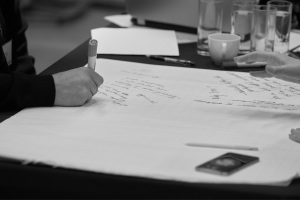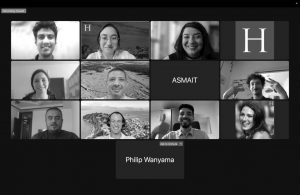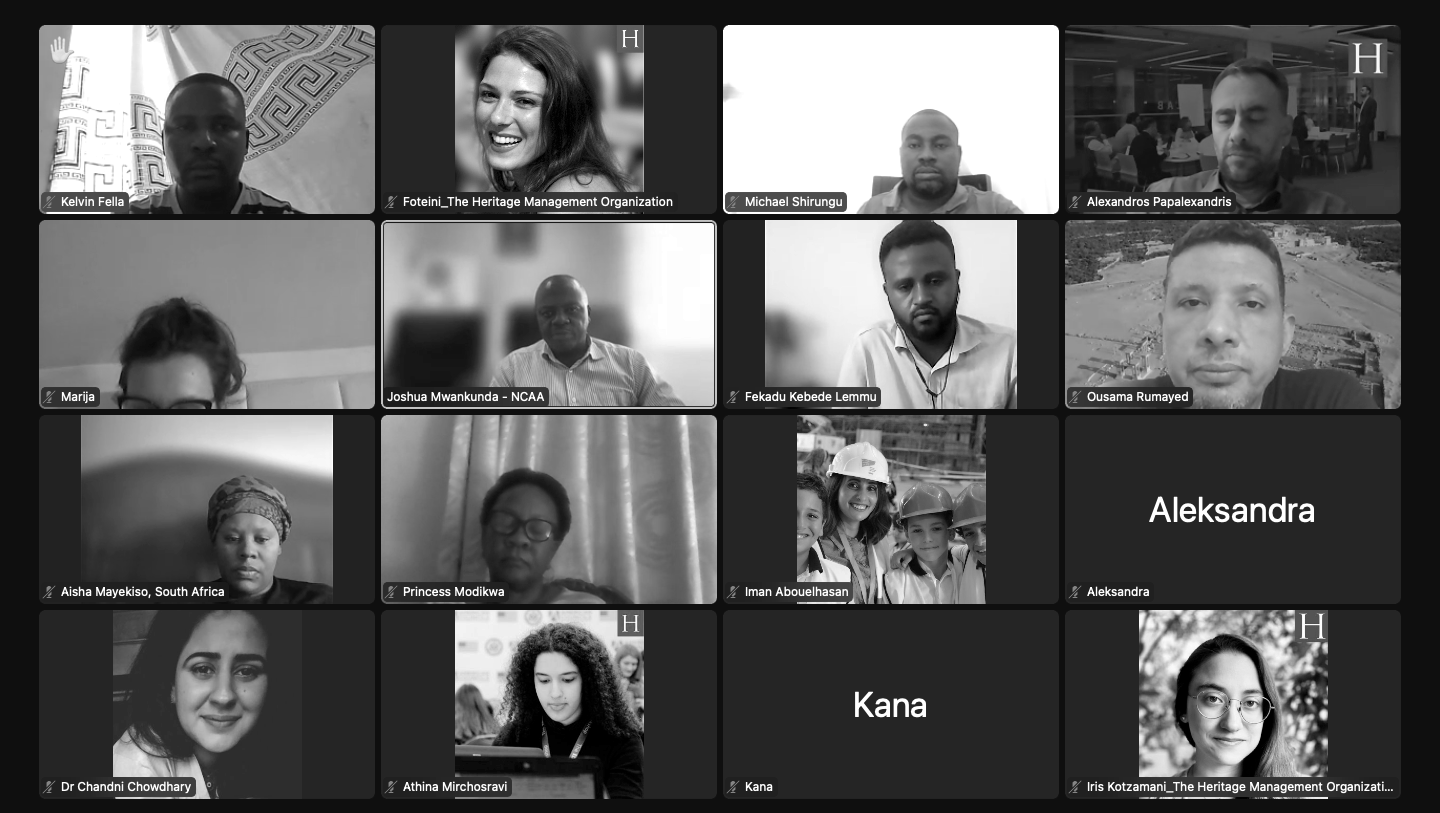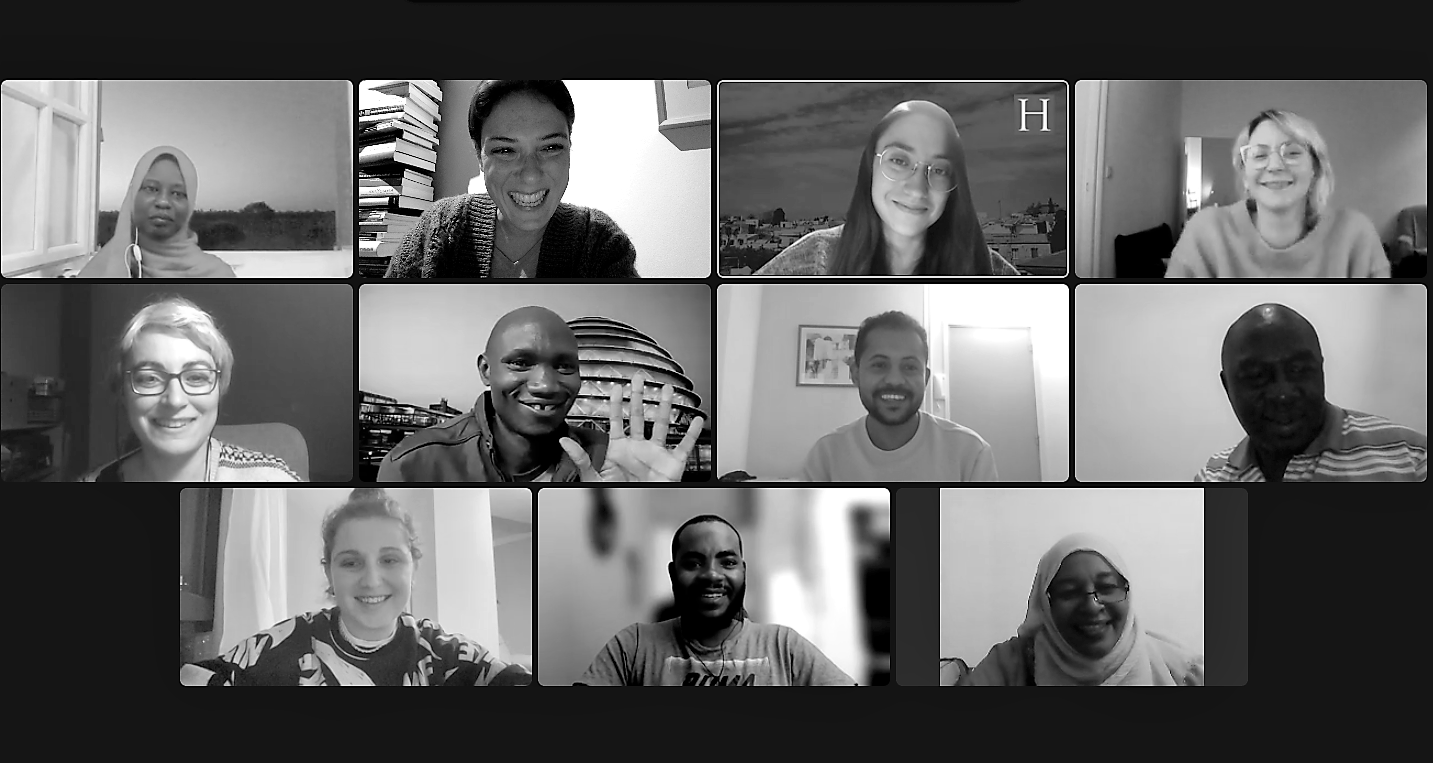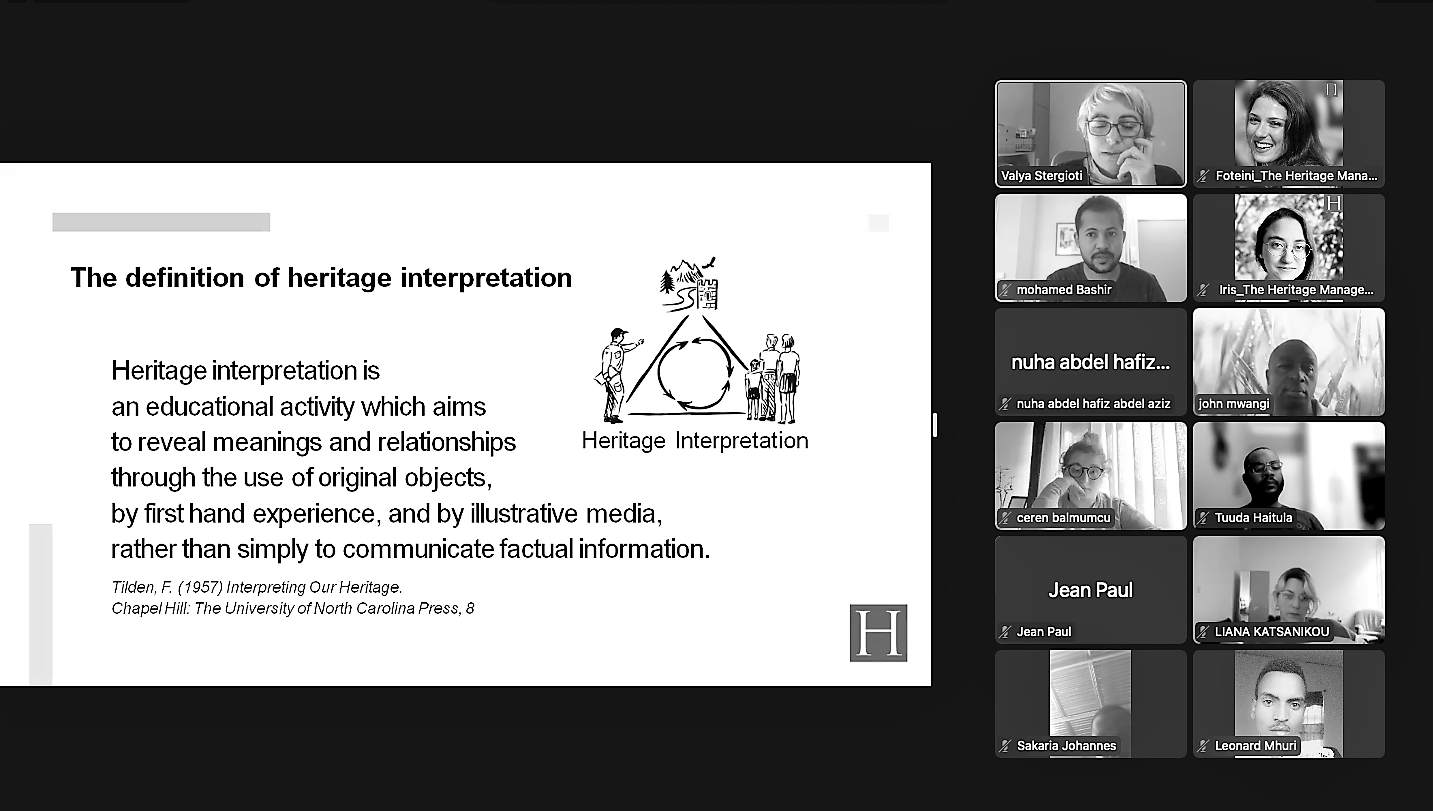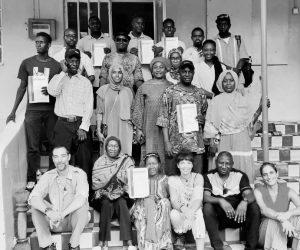: HMO Workshops
Nurturing Cultural Leadership in 2024: Last Chance to apply for two HERITΛGE Workshops
Welcome to a new year of cultural exploration and professional growth with HERITΛGE! As we navigate the evolving landscape of heritage management, at HERITΛGE we are thrilled to be counting down to two compelling workshops in early 2024, each designed to empower cultural professionals and propel you forward in your journey. Don’t miss your chance to apply for:
Organising Temporary Exhibitions from your Collections and Touring Strategies
Date: February 2-4, 2024
Location: Online Training Program
Application Deadline: January 25, 2024
Unlocking the Power of Temporary Exhibitions: Embark on a three-day journey into the world of temporary exhibitions, exploring their potential to enhance institutional missions, attract new audiences, and generate revenue. From building an institutional strategy to shaping compelling narratives, this workshop is your gateway to mastering the art of curating impactful exhibitions.
Strategies for National and International Touring: Discover the complexities of touring exhibitions beyond institutional walls. Gain practical insights into logistics, audience engagement, and navigating the global cultural landscape. The workshop encourages active participation, allowing you to bring your ideas and projects to the table for discussion and refinement.
Scholarship Opportunities: HERITΛGE believes in making cultural education accessible. Avail yourself of our scholarships, covering up to 90% of the attendance cost.
Apply here.
Brand New! Community and Economic Development Workshop
Date: February 16-18, 2024
Location: Online Training Program
Application Deadline: January 25, 2024
A New Frontier for Heritage Management: Step into uncharted territory with HERITΛGE’s inaugural workshop on Community and Economic Development. Cultural heritage managers play a pivotal role in demonstrating and creating economic benefits for local, regional, and national economies. In the aftermath of COVID-19, this workshop equips you with the knowledge and strategies to meet these challenges head-on.
Comprehensive Curriculum: Explore the motivations, limits, and various strategies for mobilizing cultural resources for economic benefits. Learn how to measure and communicate economic impacts effectively. The hands-on component guides you through developing a customized plan for creating economic benefits in your own case studies.
Pioneer Cultural Heritage for Economic Development: HERITΛGE invites cultural heritage managers and enthusiasts to be pioneers in the evolving field of cultural heritage economic development. Shape the future of heritage management and contribute to the well-being of your community. Apply now before the January 25, 2024, deadline, and embark on a transformative journey toward creating lasting economic benefits through cultural heritage.
Apply here.
Join us in these enriching workshops, where you’ll gain valuable insights, connect with industry experts, and contribute to the cultural landscape in meaningful ways. Apply now and become a catalyst for positive change in the world of heritage management and beyond.
2023-2024 Training Calendar for Heritage Professionals
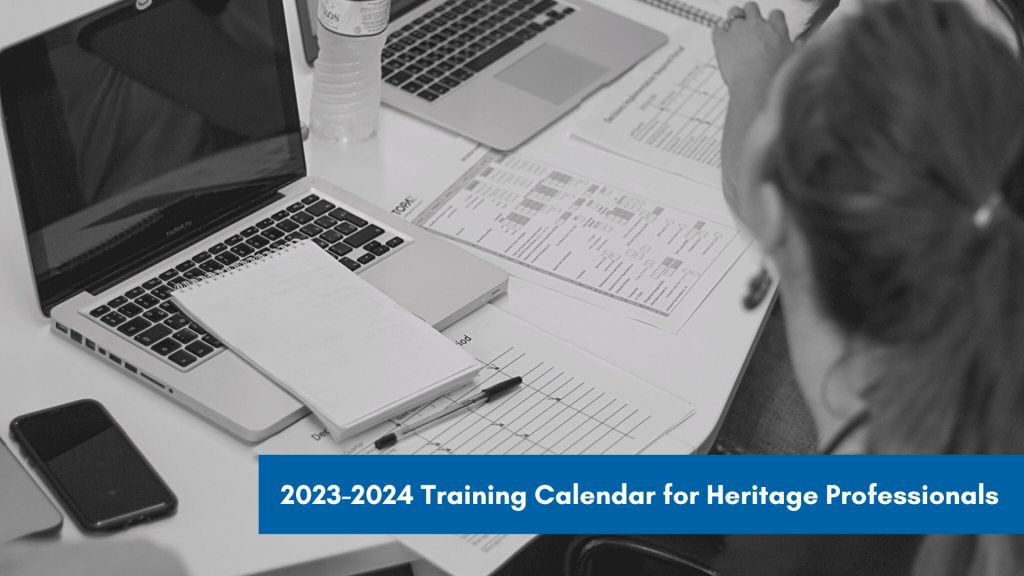 Introduction to Heritage Interpretation for Site Managers | 6 – 8 October 2023
Introduction to Heritage Interpretation for Site Managers | 6 – 8 October 2023
Transform a visit into a captivating experience. Acquire the skills to create meaningful and unforgettable experiences for visitors, during this 3-day online workshop. Only accepting last-minute waiting list applications.
Project Management for Heritage Managers | 7 – 9 October (US only) & 9 – 10 December 2023
This intensive 3-day online workshop led by Tim Healing will show participants the way to run a successful project from inception through planning to implementation and closure. A special US pilot program is still accepting last-minute applications.
Engaging Communities in Cultural Heritage | 27 – 29 October 2023
During this 3-day workshop, we aim to develop a different approach to community engagement based on social (and art) research with community-led initiatives. By adopting a research-led approach, we can foster collaborative design and actions that truly resonate with the unique cultural and social dynamics of each specific group or community, as well as their interactions with others. We will explore methodologies grounded in ethnography and oral history, while also engaging in practical exercises to reinforce learning.
Interpretive Writing for Natural and Cultural Heritage | 10 – 12 November 2023
Written text that grabs and holds the visitor’s and reader’s attention is the key to effective word-based heritage interpretation. During this 3-day online workshop with Steven Richards-Price you will discover and practice a wide range of techniques to engage visitors and master the techniques of interpretive writing.
Climate Change, Community Engagement & Interpretation | 1-3 December 2023
Brand new, 3-day workshop on climate change, heritage interpretation, and community engagement that seeks to empower participants with the tools and skills necessary to engage local communities in climate action through the lens of heritage interpretation.
Temporary Exhibition Design: Agile Exhibitions in a rapidly changing environment | 2-4 February 2024
This up-to-date 3-day workshop focuses on how temporary exhibitions can enhance and promote an institution’s mission, create new audiences and generate revenue, from building an institutional strategy for exhibitions and partnership-building to planning and putting on temporary exhibitions for display at home and on tour. Attendees are encouraged to bring their own ideas and projects to the workshop and time is allocated for 1:1 consultation with the workshop facilitators.
Community and Economic Development | 16-18 February 2024
Cultural heritage managers increasingly have to both demonstrate and create economic benefits for local, regional, and national economies. This workshop will provide attendees with a firm understanding of the motivations for mobilizing cultural resources for economic benefit; the limits of that mobilization; different strategies for creating economic benefits; and how economic impacts are measured and communicated. The workshop will then guide attendees through the development of a plan for the creation of economic benefits for their own case studies, including the development of goals; selecting appropriate strategies; judging economic feasibility; and monitoring and evaluation procedures. As a result of the course attendees will be able to implement economic development strategies in their own community.
Communication Strategy & Strategic Marketing for Cultural Organizations | 8-10 March 2024
You have organized the best exhibition of the year or set up a ground-breaking educational program. You have worked hard with curators, conservators, educators, and everything is ready to rock, but now you wonder… how can I bring people in? How can I reach my audience, and what should I be telling them? This 3-day course is a focused learning experience that provides a systemic approach to successfully attract key audiences’ attention through traditional, new, and social media.
Fundraising for Cultural Heritage Organizations | 22 – 24 March 2024
This 3-day workshop provides a survey of fundraising strategies and skills needed to start-up and build an organization’s contributed revenue with the aim of increasing its impact in the world. Participants learn best practices and apply them to create the case for support and letter of inquiry for their own organization or project.
Conservation II: First Aid for Finds | 12-14 April 2024
The workshop will provide step-by-step instruction on the best practices in the care of freshly excavated archaeological and historic objects as well as in the care of objects belonging to collections that have just been damaged. It will also examine the case of providing first aid measures to architectural heritage. It will go through all the processes that are essential during preparation, application of treatments and monitoring.
Strategic Planning for Heritage Managers| 26 – 28 April 2024
Strategy is a key factor for success in all areas of human activity. This 3-day interactive course aims to provide the tools and methodologies to effectively address the topics of successful strategy formulation and implementation in organizations managing cultural heritage in today’s complex environment.
Conservation I: Introduction to the General Principles of Cultural Heritage Conservation | 24 – 26 May 2024
Following the success of your first Conservation workshop in 2023, we are again accepting applications for this 3-day interactive course that aims to teach the principles and objectives of conservation, and in so doing to introduce its methodology. The workshop will deliver the fundamentals, the ethics, the evolution, and the contemporary international context of conservation.
HERITΛGE provides scholarships to most participants in its training programmes. These scholarships can cover up to 90% of the cost of attendance, depending on the circumstances of the participants and the availability of funding. On average, participants contribute around 300 euros to attend one of our 3-day training workshops.
Highlights from our Summer School: Digital Tools for Cultural Heritage Management
In May and June 2023, HERITΛGE’s Online Summer School on Digital Tools for Cultural Heritage Management brought together 14 heritage managers from Africa, Asia, and Europe. Led by Dr. Cornelis Stal, this annual immersive program aims to equip participants with advanced skills in GIS, Photogrammetry and image-based 3D modeling, and laser scanning.
Let’s delve into the key highlights and the impact of this transformative experience.
GIS: Unlocking the Power of Spatial Data in Heritage Management
Geographic Information Systems (GIS) play a crucial role in cultural heritage management. During the summer school, participants were introduced to open-source GIS software and gained insights into transforming manuscript plans into comprehensive geographical databases. The importance of cartography in heritage preservation was emphasized. Through hands-on instruction, participants learned practical techniques and implemented them in real-life scenarios, enabling them to harness the power of GIS for effective cultural heritage management.
Photogrammetry and Image-based 3D Modeling: Capturing Heritage in Three Dimensions
Photogrammetry and image-based 3D modeling provide an immersive and detailed way to document and preserve cultural heritage. Participants in the summer school familiarized themselves with various digital tools, such as photography, photogrammetry, 3D modeling, and model referencing. From image acquisition to data processing and model publishing, the entire workflow was covered. Participants were provided with a free license for Agisoft Metashape Professional, allowing them to create their own 3D models. This hands-on experience equipped them with the skills to capture heritage sites in stunning detail and share them with the world.
Terrestrial Laser Scanning: Unveiling the Secrets of Ancient Sites
Terrestrial laser scanning is a cutting-edge technique for acquiring precise and detailed point clouds of archaeological sites. In this specialist course, participants learned the principles and best practices of laser scanning. With a focus on 3D recording for conservation purposes, heritage managers gained the ability to create accurate representations of historic locations. This technology has the potential to revolutionize how heritage sites are documented and preserved, ensuring their legacy for future generations.
Case Studies: Putting Skills into Action
To apply their newly acquired skills, participants selected their own projects as case studies. This personalized approach allowed them to address specific challenges and gain practical experience. Projects ranged from the Roman Theatre at Palmyra in Syria to the Fort Jesus Heritage Site in Mombasa, Kenya. Each participant had the opportunity to work on their project using the digital tools and techniques they learned, making the summer school experience directly relevant to their work.
The success of our Digital Tools Summer School, that takes place annually online and in person, owes much to the expertise of Dr. Cornelis Stal, Lecturer at the Ghent University College (Department of Real Estate and Land Surveying), and Visiting Professor at the Ghent University (Department of Geography) with a significant experience in the field.
This year’s graduates are already putting their newfound expertise into action, ensuring the preservation of iconic sites for future generations.
HERITΛGE is already receiving applications for next year’s summer school and is still accepting applications for its Certificate in Digital Tools for Cultural Heritage Management, let by Dr. Stal and run in cooperation with HOGENT University.
Empowering Heritage Managers: Insights from the Strategic Planning Workshop
In a rapidly changing world, the preservation and management of cultural heritage require strategic planning and effective decision-making. HERITΛGE’s latest transformative 3-day online workshop titled “Strategic Planning for Heritage Managers” took place in mid-May and brought together 14 heritage managers from Africa, Asia, and Europe, providing them with essential strategic planning skills and knowledge.
Led by Alexandros Papalexandris, Assistant Professor of Management at the Athens University of Economics and Business, the workshop immersed participants in a comprehensive curriculum. Heritage managers from Botswana, Egypt, Ethiopia, Namibia, Tanzania, South Africa, Sudan, India, Syria, and North Macedonia had the opportunity to explore a variety of strategic analysis methods and tools. They gained insights into planning and evaluating alternative strategic options, understanding the requirements of strategy implementation projects, and assessing the macro-environmental factors influencing organizational strategies.
The participants delved into the core concepts of strategy, grasped the importance of strategic planning, and acquired the skills to craft compelling vision and mission statements. Analyzing the business macro-environment, including political, economic, social, and technological factors, were skills on which the heritage managers participating focused intensely during the training. Moreover, the workshop equipped participants with the ability to identify and leverage different types of resources and capabilities to gain a competitive advantage.
Towards Practical Application: To cement their newly acquired skills, participants were divided into three groups, and each group selected a project from within their cohort for an in-depth case study. The chosen projects included the establishment of a Children’s Museum at The Grand Egyptian Museum in Egypt, the preservation of the Palmyra World Heritage Site in Syria, and the development of the Kumanovo Museum in North Macedonia. By working on these real-world projects, the participants had the opportunity to apply their strategic planning knowledge and develop practical solutions.
While the workshop concluded after three intense days, the learning journey continues. Participants will reconvene with their instructor, Alexandros Papalexandris, on May 22nd for a tutorial meeting. This session will provide an opportunity for participants to seek guidance, clarify doubts, and receive valuable feedback to refine their final projects. This personalized approach ensures that the heritage managers are supported as they progress towards implementing their strategic plans.
The workshop featured a keynote speech by Joshua Mwankunda, a distinguished professional with two decades of management experience in government services and overseas assignments. Mr. Mwankunda showcased his expertise in heritage conservation, development, tourism, project management, procurement, and engineering. He has managed successful heritage projects within the Ngorongoro Conservation Area, including the conservation of Laetoli footprints, ElA and CHIA for road upgrades, museum development, and supervised the establishment of Sub Saharan Africa’s first Geopark.
“Introduction to Heritage Interpretation for Site Managers” workshop
The online 3-day workshop on “Introduction to Heritage Interpretation for Site Managers” took place from 25 to 27 November 2022.
10 heritage managers from Africa (Rwanda, Tanzania, Namibia, Kenya, Sudan), Europe ( Greece) and Asia (Turkey) have received training on the principles of quality heritage interpretation and practiced how to use interpretation on their own sites.
In this highly interactive and participatory workshop participants engaged daily with both individual and group activities. The workshops’ instructor, Valya Stergioti, tailored the activities and the lectures based on the participants projects and cultural background. Through this process participants learned how to turn phenomena into experiences, provoke resonance in visitors of heritage sites, offer paths to deeper meaning and foster respect for all heritage, as well as how to give and receive feedback to and from their colleagues.
The workshop was conducted by Valya Stergioti.
Valya Stergioti, is a freelance interpretive trainer and planner, with more of 20 years of experience on organizing and implementing interpretive workshops about heritage. As Interpret Europe’s Training Coordinator, along with the members of the Training Team, she is responsible for the creation and implementation of a quality, interpretive training program that will meet the needs of heritage professionals from all over Europe.
A keynote speech was delivered by Ms Olga Karagianni.
Olga Karagianni, after a career in the private sector, moved to live permanently in Andros in 2004 when she started her PhD in Sustainable Tourism.Olga is the inspirational driving force behind the Andros Routes project, leading a volunteer team to restore over 180km of ancient footpaths and helping to develop sustainable hiking tourism on Andros. In October 2018 she launched the successful multi-day “On Foot” Hiking Festival which was repeated again in 2019. She has participated in the Southern Aegean Tourism Observatory as a writer of the action plan for nature and hiking tourism. Olga has a degree in Economics from the University of Athens, a postgraduate degree in Tourism Management and Policy from the Hellenic Open University, and a PhD in Sustainable Tourism.
HERITΛGE visit to The Gambia – Meeting with heritage sector beneficiaries and stakeholders & Executive Leadership Workshop
The Heritage Management Organization (HERITΛGE) completed an in-person visit to The Gambia for the HerMaP Gambia program on 17th – 24th August to build on and develop the program’s capacity mapping and building functions for the heritage sector.
The team, headed by Project Manager Mina Morou, held meetings with The Gambia’s Vice President, Badara Alieu Joof and key heritage beneficiaries and stakeholders as well as training sessions with local heritage managers.
“We are happy to be in The Gambia after the lifting of the pandemic restrictions to further implement the HerMap Gambia program which serves as a springboard to develop the capacity of the country’s heritage sector, empowering local communities to grow sustainably by building on their culture, history, and traditions,” said Morou.
Morou, along with expert educator and trainer of trainers (ToT) Iordanis Paschalidis, and ethnomusicologist Stella Paschalidou, delivered an executive leadership workshop on Capacity Development: Strategies and Best Practices, attended by 25 cultural managers from Barra, Wassu, Janjanbureh, Juffureh and Albreda, and Banjul and its greater area.
HERITΛGE is grateful to The Gambia’s National Centre for the Art and Culture (NCAC) and its General Director, Hassoum Ceesay, for introducing and hosting the workshop as well as supporting our mission throughout its visit.
About HerMaP Gambia: The program is aimed at developing the business skills of heritage and cultural managers to enable them to establish and better support heritage and cultural enterprises. Supporting The Gambia’s heritage sector will promote community solidarity and provide high-quality employment opportunities for local talent.
The worskshop was funded by the European Union with funding partly matched by the UN Economic Commission for Africa. The HerMaP Gambia in co-funded by the European Union.

